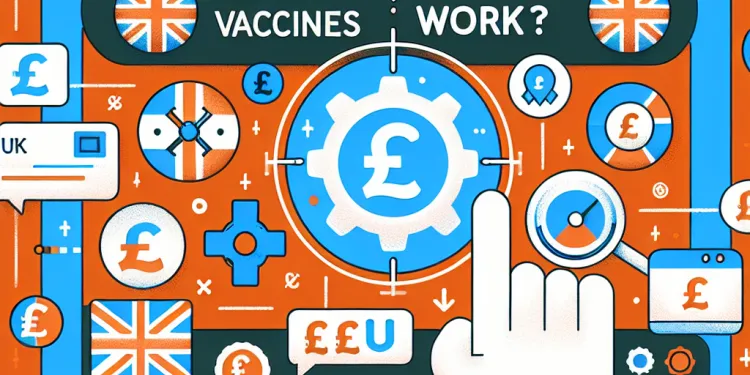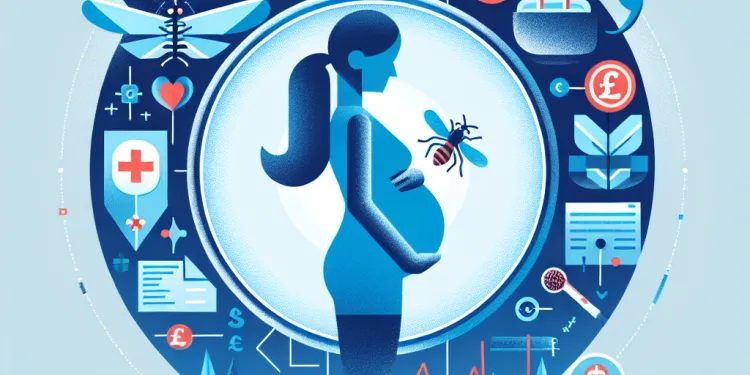
Find Help
More Items From Ergsy search
-

Is there a vaccine for Marburg virus?
Relevance: 100%
-

What is the Marburg Virus?
Relevance: 81%
-

What research is being done on the Marburg virus?
Relevance: 79%
-

Is the Marburg virus related to the Ebola virus?
Relevance: 77%
-

Can Marburg virus disease be prevented?
Relevance: 77%
-

How is the Marburg virus transmitted?
Relevance: 75%
-

Where was the Marburg virus first discovered?
Relevance: 75%
-

What measures are being taken to control Marburg virus outbreaks?
Relevance: 72%
-

What is the typical progression of Marburg virus disease?
Relevance: 72%
-

Are there any countries at higher risk for Marburg virus outbreaks?
Relevance: 71%
-

Has Marburg virus caused any major outbreaks?
Relevance: 69%
-

What is the mortality rate of Marburg virus disease?
Relevance: 69%
-

Can Marburg virus disease recur after recovery?
Relevance: 68%
-

How is Marburg virus disease diagnosed?
Relevance: 68%
-

What are the symptoms of Marburg virus disease?
Relevance: 67%
-

How can healthcare workers protect themselves from Marburg virus infection?
Relevance: 66%
-

How long is the incubation period for the Marburg virus?
Relevance: 66%
-

How do health authorities confirm a Marburg virus outbreak?
Relevance: 64%
-

Is there a vaccine for the Zika virus?
Relevance: 55%
-

Is there a vaccine for West Nile Virus?
Relevance: 51%
-

Has a vaccine been developed against Nipah Virus?
Relevance: 47%
-

What is the Ebola virus?
Relevance: 43%
-

Is there a vaccine for Chikungunya virus?
Relevance: 42%
-

Is there a vaccine for norovirus?
Relevance: 38%
-

Is there a cure for Nipah Virus?
Relevance: 37%
-

How do vaccines work?
Relevance: 37%
-

Is there a vaccine for H3N2?
Relevance: 37%
-

What is Nipah Virus?
Relevance: 36%
-

How effective is the flu vaccine?
Relevance: 36%
-

Are there treatments for West Nile Virus?
Relevance: 36%
-

Can the flu vaccine give you the flu?
Relevance: 35%
-

Can the shingles vaccine cause chickenpox?
Relevance: 35%
-

Are there vaccines available for HIV?
Relevance: 34%
-

Is Zika virus present in the UK?
Relevance: 34%
-

Is the shingles vaccine safe?
Relevance: 34%
-

Can Chikungunya virus infection be treated?
Relevance: 33%
-

What is West Nile Virus?
Relevance: 33%
-

What is West Nile Virus?
Relevance: 33%
-

What is the mortality rate of Nipah Virus infection?
Relevance: 33%
-

Can Zika virus affect pregnancy?
Relevance: 33%
Overview of the Marburg Virus
The Marburg virus is a rare but severe hemorrhagic fever virus first identified in 1967 after outbreaks in Marburg and Frankfurt in Germany and Belgrade, Serbia. Part of the Filoviridae family, which also includes the Ebola virus, Marburg is considered highly infectious and comes with a high mortality rate, making the presence or absence of a vaccine particularly significant from a public health perspective.
Current Status of a Marburg Virus Vaccine
As of now, there is no fully licensed vaccine for the Marburg virus available to the public in the UK or elsewhere. Due to the sporadic nature of Marburg outbreaks, challenges in commercial viability, and technical difficulties in developing vaccines for hemorrhagic fever viruses, progress has been slow. However, significant advancements have been made in recent years towards developing a viable vaccine candidate.
Research and Development
Various institutions worldwide are working on developing an effective and safe Marburg virus vaccine. The World Health Organization (WHO) has listed a few candidate vaccines in clinical trials. Among these, vaccines using recombinant virus vector technologies, such as those used in experimental Ebola vaccines, show promise. One such candidate is the vaccine being developed by the US National Institute of Allergy and Infectious Diseases (NIAID), which uses a recombinant vesicular stomatitis virus (rVSV) platform. Clinical trials are ongoing to assess the safety and efficacy of these candidates.
Challenges in Vaccine Development
One of the primary challenges is the limited number of cases and outbreaks needed to effectively test vaccine candidates in the field. Moreover, the high level of biosafety required in laboratories handling the virus adds complexity and cost to the research. Additionally, with the sporadic nature of the outbreaks primarily in remote areas of Africa, maintaining the logistics and infrastructure necessary for vaccine trials can be problematic.
Future Prospects
Despite these challenges, the scientific community remains optimistic. Recent technological advances in vaccine development, galvanized by the global urgency to find vaccines for emerging infectious diseases, could accelerate progress for a Marburg virus vaccine. International collaborations, increased awareness, and funding incentives could potentially speed up the availability of a licensed vaccine in the future.
Conclusion
While a commercial Marburg virus vaccine is not yet available, ongoing research and trials are crucial steps towards this goal. Continued support and investment in vaccine research are vital, not only for global health security but also for protecting populations in vulnerable regions where the virus is more likely to occur. As developments unfold, it is hoped that a breakthrough will lead to a widely accessible vaccine, bolstering preparedness for possible future outbreaks.
Overview of the Marburg Virus
The Marburg virus is a very serious illness. It was first found in 1967 in Germany and Serbia. It is like the Ebola virus and is part of the same family. Marburg virus can make people very sick, and many people who catch it die. There is no vaccine yet, which is a big problem for keeping people safe.
Current Status of a Marburg Virus Vaccine
Right now, there is no vaccine for the Marburg virus that people can use. Scientists are working on it, but it is hard to make the vaccine because Marburg outbreaks do not happen very often. Also, making a vaccine like this is tricky. Even though it's hard, scientists have made progress in finding a good vaccine.
Research and Development
Scientists all over the world are trying to make a vaccine for the Marburg virus that is safe and works well. The World Health Organization (WHO) talks about some vaccines that are being tested. Some vaccines use ideas from Ebola vaccine studies. One important vaccine is being made by scientists in the USA. They are using a special method with a virus that cannot make people sick. This method is called the rVSV platform. Scientists are still testing these vaccines to make sure they are safe and work well.
Challenges in Vaccine Development
There are many challenges to making a vaccine. There are not many cases of Marburg virus, so it is hard to test if the vaccine works. Also, working with the Marburg virus in labs is dangerous and costs a lot of money. The places where the virus happens are often far away and hard to get to. This makes testing new vaccines in these places difficult.
Future Prospects
Even with these challenges, scientists are hopeful. New technology for making vaccines is helping. The world is trying hard to find vaccines for new diseases quickly. This could help make a Marburg virus vaccine. Working together, telling people more about it, and getting more money for research can help make a vaccine faster in the future.
Conclusion
Right now, there is no vaccine for the Marburg virus that people can use. But scientists are working hard to make one. It is important to support this research to keep the world safe and help people in places where the virus might spread. If scientists make a good vaccine, it will help a lot if there are more outbreaks in the future.
Frequently Asked Questions
Is there a vaccine for the Marburg virus?
As of the latest updates, there is no licensed vaccine for the Marburg virus, but research and clinical trials are ongoing.
Are there any experimental vaccines for the Marburg virus?
Yes, there are experimental vaccines being developed and tested in clinical trials.
What is the current status of Marburg virus vaccine development?
Several candidate vaccines are in different stages of clinical trials, but none have been licensed yet.
Who is working on a Marburg virus vaccine?
Various pharmaceutical companies and research institutions are working on developing a vaccine.
What are the challenges in developing a vaccine for the Marburg virus?
Challenges include limited outbreaks for vaccine testing, the need for high safety standards, and the complexity of the virus.
Have any Marburg virus vaccines been used in outbreaks?
Some experimental vaccines have been deployed in emergency situations during outbreaks under compassionate use protocols.
Is there a timeline for when a Marburg virus vaccine might be available?
It is uncertain, but researchers are hopeful for progress in the coming years as trials advance.
What is being done to expedite the development of a Marburg virus vaccine?
Efforts include international collaborations, increased funding, and regulatory pathways for fast-tracking promising candidates.
Can existing vaccines for other viruses be used against Marburg virus?
No, existing vaccines do not provide protection against the Marburg virus.
Why is it important to develop a vaccine for the Marburg virus?
A vaccine would prevent outbreaks, protect at-risk populations, and improve global health security.
How does the Marburg virus spread?
The virus spreads through contact with the bodily fluids of infected individuals, similar to the Ebola virus.
What are the symptoms of Marburg virus infection?
Symptoms include fever, chills, headache, and muscle pain, progressing to more severe symptoms like bleeding and organ failure.
What preventative measures exist for Marburg virus without a vaccine?
Preventative measures include avoiding exposure to fruit bats, using protective gear in outbreak areas, and isolating infected individuals.
Has the World Health Organization recommended any vaccines for the Marburg virus?
The WHO is involved in coordinating vaccine research but has not recommended any vaccines as none are yet licensed.
Can humans develop immunity to the Marburg virus?
Some individuals may develop immunity after recovering from infection, but this is not well understood.
Are vaccine trials for Marburg virus conducted on humans?
Yes, current vaccine trials include human volunteers to assess safety and efficacy.
How effective are the experimental Marburg virus vaccines in trials?
Initial results are promising, but more data is needed to determine their effectiveness across diverse populations.
What is the mortality rate of the Marburg virus?
The mortality rate can be up to 88%, depending on the outbreak and available medical interventions.
What role do governments play in Marburg virus vaccine development?
Governments fund research, provide regulatory support, and collaborate with international health organizations to facilitate development.
How is a Marburg virus vaccine likely to change outbreak responses in the future?
A vaccine would enable quicker and more effective responses, reducing transmission and potentially saving lives.
Is there a shot to stop the Marburg virus?
No, there is no shot to stop the Marburg virus yet.
Scientists are working hard to make a shot for the Marburg virus.
It is important to listen to doctors and follow their advice to stay safe.
You can use pictures or listening tools to help understand this information better.
Right now, there is no approved vaccine for the Marburg virus. But scientists are working hard to make one.
Is there a test vaccine for the Marburg virus?
Yes, new vaccines are being made and tested to see if they work. These tests are happening in special studies with people.
How is the Marburg virus vaccine being made right now?
Scientists are working hard to make a vaccine for the Marburg virus. This virus can make people very sick. A vaccine helps your body fight the virus if you get it.
Right now, scientists are testing different vaccines to see which one works best. They do this in special stages:
- First test: They see if the vaccine is safe for people.
- Second test: They find out the right amount of vaccine to give.
- Third test: They check if the vaccine really stops people from getting sick.
Making a vaccine can take a long time because it needs to be safe and helpful.
Tools to help: Pictures and simple videos can help you understand how vaccines work. Talk to a doctor if you have questions!
There are different vaccines being tested in trials. But no vaccine has been approved for use yet.
Who is making a vaccine for the Marburg virus?
Some people are trying to make a medicine to stop the Marburg virus.
They are busy in labs working on it.
If you want help to understand, you can:
- Ask someone to read with you.
- Use a reading app to hear the words.
- Look for pictures or videos about the Marburg virus.
Many drug companies and research places are trying to make a vaccine.
What makes it hard to make a vaccine for the Marburg virus?
Some problems are:
1. Not many outbreaks make testing vaccines hard.
2. We must keep vaccines very safe.
3. The virus is complicated.
Using pictures or videos can help to understand this better. Also, taking breaks while reading might make it easier.
Did people use any Marburg virus vaccines during outbreaks?
Scientists sometimes try special new vaccines when there is a big health emergency. This is because they want to help people quickly.
When will we have a vaccine for the Marburg virus?
Scientists are working on a vaccine to stop the Marburg virus. We do not know exactly when it will be ready. It takes time to make sure the vaccine is safe and works well.
It can help to use tools like:
- Audiobooks to listen to information.
- Video explanations.
- Talking to someone who knows about the Marburg virus.
We are not sure yet, but scientists are working hard. We hope to know more in the next few years as they do more tests.
What is being done to speed up making a vaccine for the Marburg virus?
Scientists are working hard to make a Marburg virus vaccine quickly. They are using new tools and methods to make it faster. Here are some things they are doing:
- Testing the vaccine on animals to see if it works.
- Using computers to study the virus and plan the vaccine.
- Working with other scientists and sharing ideas.
We can also help by learning more about the virus. You can watch videos, listen to simple podcasts, or read easy news articles about the Marburg virus.
People are working together from different countries. They are putting more money into the work. There are special rules to make new ideas move faster.
Can other vaccines help fight Marburg virus?
No, the shots we have now do not protect against the Marburg virus.
Why do we need a medicine for the Marburg virus?
The Marburg virus can make people very sick. It is important to have a special medicine, called a vaccine, to stop people from getting sick.
Here is why it's important:
- The virus can spread quickly and make lots of people sick.
- A vaccine can protect people and stop the virus from spreading.
Things that can help:
- Use simple words when talking about the virus.
- Watch videos that explain how vaccines work.
- Talk to a doctor or nurse for more help.
A vaccine can stop people from getting sick, keep those who might get very sick safe, and make sure people around the world stay healthy.
How does the Marburg virus spread?
The Marburg virus makes people sick. It can spread from one person to another. Here's how it happens:
- Touching: If you touch someone who is sick with Marburg or their things, you can get it too.
- Body fluids: The virus can be in blood, sweat, vomit, or other body fluids. Stay away from these if someone is sick.
- Bats: Sometimes, the virus can come from bats. Be careful around bats that might be sick.
To stay safe, wash your hands often and keep away from sick people or animals.
If reading is hard, you can ask someone to read to you. You can also use a reading app to help you understand better.
The virus can spread when a person touches body fluids, like blood or sweat, from someone who is sick. This is like how the Ebola virus spreads.
What happens if you get the Marburg virus?
The Marburg virus can make you very sick. It can feel like a cold or the flu.
- You might get a fever. This means your body is too hot.
- Your head might hurt a lot.
- You could feel very tired and weak.
- Your muscles might ache.
- You might get a sore throat.
- Your stomach might feel upset, and you could feel sick or throw up.
- You might have a rash on your skin.
If you feel these things, it is a good idea to talk to a doctor or a nurse. They can help you feel better.
To help understand this better, you can:
- Look at pictures of the symptoms. Sometimes pictures can help explain words.
- Ask someone you trust to explain it in simple words.
- Write down any questions you have. You can share these with a doctor.
When you are sick, you might feel very hot (this is called a fever). You could also feel very cold and shaky (these are chills). Your head might hurt (this is a headache), and your muscles might feel sore and achy.
If you get even sicker, more serious things can happen. You might notice bleeding, and your body might not work right (this is called organ failure).
It can help to talk to a doctor if you have these symptoms. They can give you medicine and help you feel better. You can also ask a family member or friend to help explain things and support you if you’re not feeling well.
How can we stop the Marburg virus without a vaccine?
To stay safe, do these things:
- Stay away from fruit bats.
- Wear protective clothing if you are in areas with an outbreak.
- Keep away from people who are sick.
Does the World Health Organization say we should get a vaccine for the Marburg virus?
The WHO is helping with vaccine research. They have not said which vaccines to use because none are ready yet.
Can people become protected from the Marburg virus?
The Marburg virus is a very strong germ that can make people very sick.
People heal after they get the virus, but doctors are not sure if they can get it again.
Washing hands and seeing a doctor can help protect us from getting sick.
Ask an adult or doctor for help if you want to know more.
After getting sick, some people might not get sick from the same thing again for a while. But we don't know a lot about how this works.
Do people test Marburg virus vaccines on humans?
Yes, people are helping test vaccines to make sure they are safe and work well.
Do the new vaccines for the Marburg virus work well in tests?
People are testing new vaccines for the Marburg virus.
Scientists give the vaccine to some people to see if it stops them from getting sick.
They want to know if the vaccine is safe and if it works.
Tools like pictures or videos can help us learn more about vaccines.
We can also ask someone we trust to explain things to us.
First results look good, but we need more information to see if they work well for different groups of people.
How many people die from the Marburg virus?
The Marburg virus is very dangerous. It can make people very sick.
A lot of people who get the Marburg virus do not get better.
Many people who catch it die.
If you do not understand, ask someone to explain.
Using pictures and videos can help you learn.
The chance of people dying can be very high, up to 88%. This depends on where the disease is and what doctors can do to help.
How do governments help make a vaccine for the Marburg virus?
Governments help by giving money for research. They also make rules to keep everyone safe. They work with health groups from all over the world to make things better.
If you find reading hard, try using tools like audiobooks or read-along apps. These can help make reading easier and more fun!
How will a Marburg virus vaccine help in the future?
A new vaccine can stop the Marburg virus. This will help doctors and nurses. They can stop the virus quickly.
When people get the vaccine, they stay healthy. The virus cannot spread easily.
Doctors and scientists will have more time to find out where the virus started. This helps them stop it from happening again.
Tools like picture cards and simple videos can help people understand more about the vaccine.
A vaccine can help us stop diseases faster. It can keep people from getting sick and save lives.
Useful Links
This website offers general information and is not a substitute for professional advice.
Always seek guidance from qualified professionals.
If you have any medical concerns or need urgent help, contact a healthcare professional or emergency services immediately.
Some of this content was generated with AI assistance. We’ve done our best to keep it accurate, helpful, and human-friendly.
- Ergsy carfully checks the information in the videos we provide here.
- Videos shown by Youtube after a video has completed, have NOT been reviewed by ERGSY.
- To view, click the arrow in centre of video.
- Most of the videos you find here will have subtitles and/or closed captions available.
- You may need to turn these on, and choose your preferred language.
- Go to the video you'd like to watch.
- If closed captions (CC) are available, settings will be visible on the bottom right of the video player.
- To turn on Captions, click settings .
- To turn off Captions, click settings again.
More Items From Ergsy search
-

Is there a vaccine for Marburg virus?
Relevance: 100%
-

What is the Marburg Virus?
Relevance: 81%
-

What research is being done on the Marburg virus?
Relevance: 79%
-

Is the Marburg virus related to the Ebola virus?
Relevance: 77%
-

Can Marburg virus disease be prevented?
Relevance: 77%
-

How is the Marburg virus transmitted?
Relevance: 75%
-

Where was the Marburg virus first discovered?
Relevance: 75%
-

What measures are being taken to control Marburg virus outbreaks?
Relevance: 72%
-

What is the typical progression of Marburg virus disease?
Relevance: 72%
-

Are there any countries at higher risk for Marburg virus outbreaks?
Relevance: 71%
-

Has Marburg virus caused any major outbreaks?
Relevance: 69%
-

What is the mortality rate of Marburg virus disease?
Relevance: 69%
-

Can Marburg virus disease recur after recovery?
Relevance: 68%
-

How is Marburg virus disease diagnosed?
Relevance: 68%
-

What are the symptoms of Marburg virus disease?
Relevance: 67%
-

How can healthcare workers protect themselves from Marburg virus infection?
Relevance: 66%
-

How long is the incubation period for the Marburg virus?
Relevance: 66%
-

How do health authorities confirm a Marburg virus outbreak?
Relevance: 64%
-

Is there a vaccine for the Zika virus?
Relevance: 55%
-

Is there a vaccine for West Nile Virus?
Relevance: 51%
-

Has a vaccine been developed against Nipah Virus?
Relevance: 47%
-

What is the Ebola virus?
Relevance: 43%
-

Is there a vaccine for Chikungunya virus?
Relevance: 42%
-

Is there a vaccine for norovirus?
Relevance: 38%
-

Is there a cure for Nipah Virus?
Relevance: 37%
-

How do vaccines work?
Relevance: 37%
-

Is there a vaccine for H3N2?
Relevance: 37%
-

What is Nipah Virus?
Relevance: 36%
-

How effective is the flu vaccine?
Relevance: 36%
-

Are there treatments for West Nile Virus?
Relevance: 36%
-

Can the flu vaccine give you the flu?
Relevance: 35%
-

Can the shingles vaccine cause chickenpox?
Relevance: 35%
-

Are there vaccines available for HIV?
Relevance: 34%
-

Is Zika virus present in the UK?
Relevance: 34%
-

Is the shingles vaccine safe?
Relevance: 34%
-

Can Chikungunya virus infection be treated?
Relevance: 33%
-

What is West Nile Virus?
Relevance: 33%
-

What is West Nile Virus?
Relevance: 33%
-

What is the mortality rate of Nipah Virus infection?
Relevance: 33%
-

Can Zika virus affect pregnancy?
Relevance: 33%


